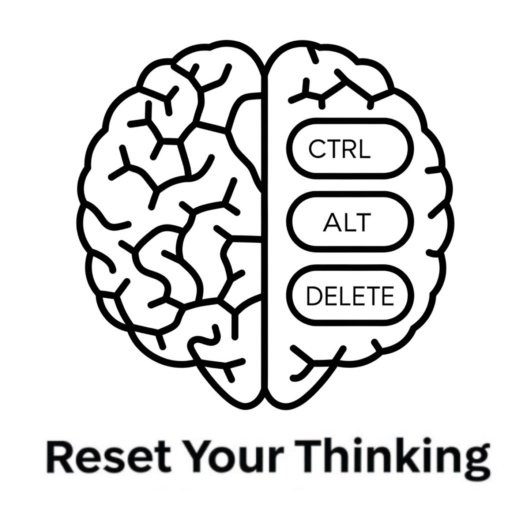The central theme of “People Buy You” is that in business, and especially in sales, who you are and how you interact with others is significantly more important than what you are selling or the technical aspects of your business. Jeb Blount argues that people ultimately “buy” the person first, and then the product or service. This hinges on the ability to be likable, connect with others, solve their problems, and build trust. The book aims to provide practical, actionable strategies for developing these interpersonal skills.
Key Ideas and Facts
1. Shift from Information to Empathy:
- The modern business environment requires a move away from simply providing information towards understanding and empathizing with others.
- The author notes the overcomplication of many sales books, which often ignore the “basic principles of human interaction that drive everything in our lives.”
2. Debunking Relationship Myths:
- Myth #1: Friends Buy from Friends: While friends might occasionally buy from you, relying solely on this network is unsustainable. “Most times they do not, and it sure is easy to run out of friends or, more likely, watch them run from you.” Success requires engaging those who are not your friends.
- Myth #2: People Buy from People They Like: Likability is important, but it’s not the sole determinant. People primarily buy from those who solve their problems. “They buy from people who solve their problems. The issue was that I had substituted charm for substance.”
- Myth #3: You Have to Sell Yourself: This cliché is misleading. People dislike being sold to. Instead, focus on interacting in a way that helps others get what they want. “People love to buy but they hate to be sold.”
3. The Five Levers of “People Buy You”:
- These levers are explored in detail in the subsequent chapters:
- Likability: The gateway to connections.
- Connection: Making people feel important and genuinely interested in them.
- Problem Solving: Delivering value by consistently focusing on and solving others’ problems.
- Trustworthiness: Being reliable, keeping promises, and admitting mistakes.
- Creating Positive Emotional Experiences: Making others feel good and valued.
4. Likability as the Foundation:
- Likability is defined as “having qualities that bring about a favorable regard.”
- It’s the crucial first step to allow for conversation and build relationships. “Likability is the gateway to connections and relationships.”
- Being unlikable virtually eliminates the chance to build a relationship.
5. Key Behaviors to Enhance Likability:
- Smile: A universal language that attracts and sets people at ease. “The smile is the most effective way to be likable. Period.”
- Be Polite, Nice, Respectful, and Mind Your Manners: Demonstrating basic etiquette makes a positive impression and provides a competitive edge in a world where impoliteness is common. “With so many impolite people walking around, there is a real opportunity for polite, nice business people to make a great impression.”
- Compliment Others: Sincere compliments make people feel valued and increase their self-esteem, leading them to find you likable. “Everyone likes a compliment.”
- Be Respectful: Showing esteem through actions and conduct. This includes using polite language, respecting personal space, and being attentive.
- Be There (Focused): Giving your complete attention to the person you are interacting with, free from distractions. “Wherever you are, be there.”
- Be Confident: A balance of self-belief without arrogance. Confident people are more likable. “Confident people are very likable. We like to be around and associated with confident people because confident people look successful.”
6. The Importance of Listening:
- Listening is a powerful way to connect with others and build trust. “The more you listen to another person, the more they will trust you.”
- Active Listening: Employing behaviors like eye contact, verbal feedback, and summarizing. However, true listening goes beyond these actions and requires removing distractions and focusing entirely on the other person.
- Eye Contact: Maintaining good eye contact demonstrates focus and respect.
- Listening Deeply: Engaging with the speaker’s verbal and nonverbal cues to understand their emotions and needs.
7. The Role of Problem Solving:
- People buy from those who can solve their problems effectively.
- Understanding the “iceberg” of needs, where surface-level issues may hide deeper concerns.
- Asking insightful questions to uncover the real problems and emotional drivers.
8. Building Trust:
- Trust is built over time through consistent evidence of reliability. “Building and maintaining trust in business relationships means providing consistent evidence that you can be trusted.”
- Being consistently “on stage,” where all behaviors are observed and judged.
- Going the Extra Mile: Exceeding expectations and demonstrating a commitment to excellence. “It is what you do in the extra mile that makes you special.”
- Sweating the Small Stuff: Paying attention to details, as seemingly minor inconsistencies can erode trust.
- Apologizing Effectively: Humility, timeliness, and sincerity are key to repairing trust after mistakes.
- Listening Builds Trust: Allowing others to express themselves fully without interruption fosters trust.
- Consistent Behavior: Predictability in actions and demeanor is crucial for building and maintaining trust.
9. Creating Positive Emotional Experiences:
- Making others feel good and valued strengthens relationships.
- The Law of Reciprocity suggests that giving value often leads to positive returns.
- Anchoring: Creating an emotional bond that holds relationships together, requiring ongoing effort and attention.
10. Managing Your Personal Brand: – Recognizing that people assign labels, and these perceptions impact your business interactions. – Consciously managing your behaviors to cultivate a positive and trustworthy personal brand.
Quotes:
- “Who you are is always more important than what you do.” – Dan Schawbel, quoting a central tenet of the book.
- “People buy you: the real secret to what matters most in business.” – Book Title
- “People Buy You is about interacting with others in a way that helps them get what they want so that you get what you want.” – Chapter 1
- “Likability is the gateway to connections and relationships.” – Chapter 3
- “The smile is the most effective way to be likable. Period.” – Chapter 3
- “Wherever you are, be there.” – Jim Rohn, quoted in Chapter 4 regarding focus and presence.
- “The more you listen to another person, the more they will trust you.” – Chapter 7
- “It is what you do in the extra mile that makes you special.” – Coach Pat Dye, quoted in Chapter 8.
Conclusion
“People Buy You” presents a compelling case for prioritizing interpersonal skills in the business world. By focusing on likability, connection, problem-solving, trustworthiness, and creating positive experiences, individuals can build stronger relationships, foster greater trust, and ultimately achieve greater success. The book’s practical advice and emphasis on consistent, positive interactions provide a valuable framework for anyone looking to enhance their influence and effectiveness in their professional lives.
RYT Podcast is a passion product of Tyler Smith, an EOS® Implementer (more at IssueSolving.com). All Podcasts are derivative works created by AI from publicly available sources. Copyright 2025 All Rights Reserved.

